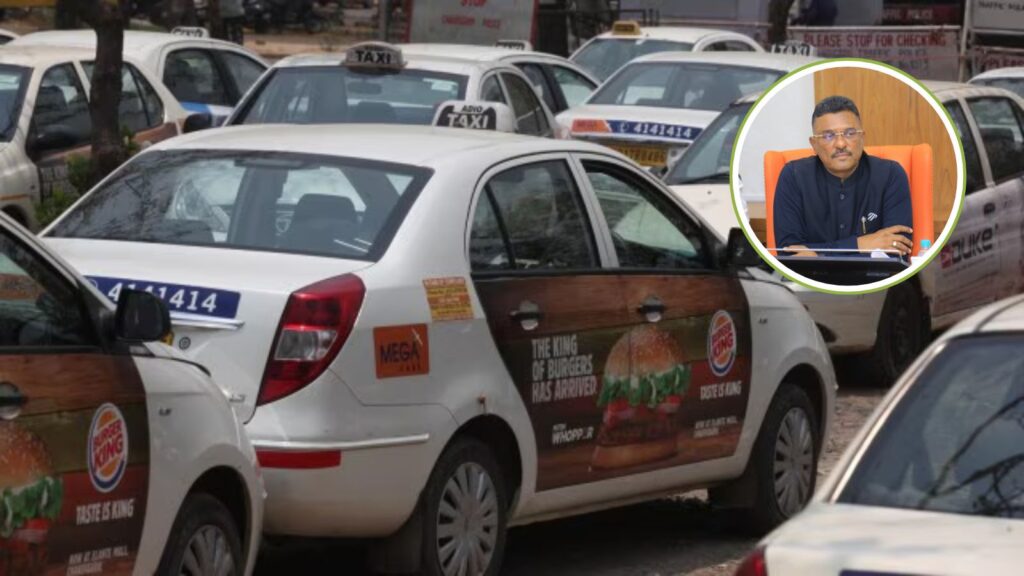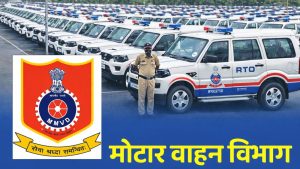Ola, Uber and Rapido to be Regulated Under Maharashtra Motor Vehicle Aggregator Rules 2025 for Safety and Fares’ Clarity

The Maharashtra government has announced the draft Maharashtra Motor Vehicle Aggregator Rules, 2025 to bring greater discipline, transparency, and passenger safety to app-based transport services like Ola, Uber, and Rapido. The draft rules have been framed under Sections 73, 74, and 93 of the Motor Vehicles Act, 1988. Public suggestions and objections have been invited until October 17, 2025, after which the rules will be implemented across the state.
Transport Minister Pratap Sarnaik said the new framework aims to make the relationship between aggregator companies, drivers, and passengers more transparent while improving fare regulation, service quality, and driver welfare.
Applicable to All App-Based Passenger Services
These rules will apply to all passenger motor vehicle aggregators, including e-rickshaws, ensuring that cab and e-rickshaw operators function under a uniform system. However, a separate set of rules titled Maharashtra Bike-Taxi Rules, 2025 will govern bike-taxi services, which will require a distinct licence.
Licence Fee and Security Deposit
To operate legally, aggregators must obtain a licence from either the State Transport Authority (STA) or the Regional Transport Authority (RTA).
- State Transport Authority (per district): Licence issuance – ₹10 lakh, renewal – ₹25,000
- Regional Transport Authority (per district): Licence issuance – ₹2 lakh, renewal – ₹5,000
In addition, companies must deposit a security amount based on the size of their fleet:
- Up to 100 buses or 1,000 vehicles – ₹10 lakh
- Up to 1,000 buses or 10,000 vehicles – ₹25 lakh
- More than 1,000 buses or 10,000 vehicles – ₹50 lakh
Fare and Pricing Regulations
The state has introduced clear fare rules to prevent overcharging or unfair discounts.
- Surge pricing: Fares can rise during high demand but cannot exceed 2.5 times the base fare set by the RTA.
- Minimum fare limit: Even in low-demand periods, fares cannot drop below 25% of the base fare.
- Convenience fee: The fee charged to riders cannot exceed 5% of the base fare, and the total deduction — including the platform’s commission — must not exceed 10%.
राज्यातील ॲप-आधारित प्रवासी वाहतूक सेवांमध्ये (उदा. ओला, उबर, रॅपिडो) अधिक शिस्तबद्धता, पारदर्शकता आणि प्रवासी सुरक्षेसाठी महाराष्ट्र शासनाने ‘महाराष्ट्र मोटर वाहन ॲग्रीगेटर नियम, २०२५’ या मसुदा नियमांची घोषणा केली आहे. हे नियम मोटार वाहन कायदा, १९८८ च्या कलम ७३, ७४ आणि ९३… pic.twitter.com/2DQDz09yOr
— MAHARASHTRA DGIPR (@MahaDGIPR) October 10, 2025
Driver Conditions and Safety Standards
The government has laid out detailed conditions for drivers to ensure road safety and service quality.
- Working hours: A driver can remain logged into the app for a maximum of 12 hours in a day, followed by a mandatory 10-hour rest period.
- Training: Every driver must complete a 30-hour training programme before joining an aggregator.
- Rating system: Drivers with an average rating below two stars out of five will be temporarily deactivated and required to undergo retraining before resuming work.
- Insurance: Passengers must have the option to opt for travel insurance up to ₹5 lakh for each ride.
Vehicle Age Restrictions
To maintain road safety and reduce pollution, the rules specify the maximum age of vehicles:
- Auto-rickshaws and motor cabs – Not more than 9 years from the date of registration.
- Buses – Not more than 8 years old.
App and Website Requirements
Aggregator apps must follow new technical and accessibility guidelines:
- The app and website must be available in Marathi, Hindi, and English.
- The driver should not see the passenger’s destination before accepting a ride, to prevent refusals and discrimination.
- Passengers must be able to share their live location and track the trip in real time.
- Special accessibility features for disabled passengers will be mandatory.
Focus on Transparency and Safety
Minister Pratap Sarnaik said Maharashtra Motor Vehicle Aggregator Rules 2025 are designed to bring structure to the growing app-based mobility ecosystem and ensure fair practices for all stakeholders. “These rules will improve trust, ensure fair earnings for drivers, and enhance passenger safety,” he said.
Once implemented, Maharashtra will become one of the first Indian states to comprehensively regulate app-based taxi aggregators through its own set of state-specific rules, aligned with the Centre’s 2020 guidelines.









